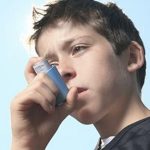
Fewer U.S. adults are smoking cigarettes, as rates dropped again last year, according to federal health officials. In all, 1 in 9 American adults smoked cigarettes last year, an all-time low, and a significant change from the 1960s when 42% smoked. The results weren’t all positive, the Associated Press reported, as vaping rose to about 1 in 17 adults. For 2022, use of electronic cigarettes was about 6% compared to 4.5% the year before. These preliminary findings are from a survey of more than 27,000 adults by the U.S. Centers for Disease Control and Prevention. The findings are sometimes revised after further analysis. “I think that smoking will continue to ebb downwards, but whether the prevalence of nicotine addiction will drop, given the rise of electronic products, is not clear,” Dr. Jonathan Samet, dean of the Colorado School of Public Health in Aurora, told the AP. For nearly 40 years, Samet has been a contributing author to the U.S. Surgeon General’s reports on smoking and health. The preliminary findings for 2022 pegged the percentage of adult smokers in the United States at 11%, down from about 12.5% the year before, the AP reported. While more adults smoke cigarettes than vape, the opposite is true for minors. About 14% of high schoolers used e-cigarettes last year, compared to about 2% who smoked traditional cigarettes, according to… read on > read on >


















